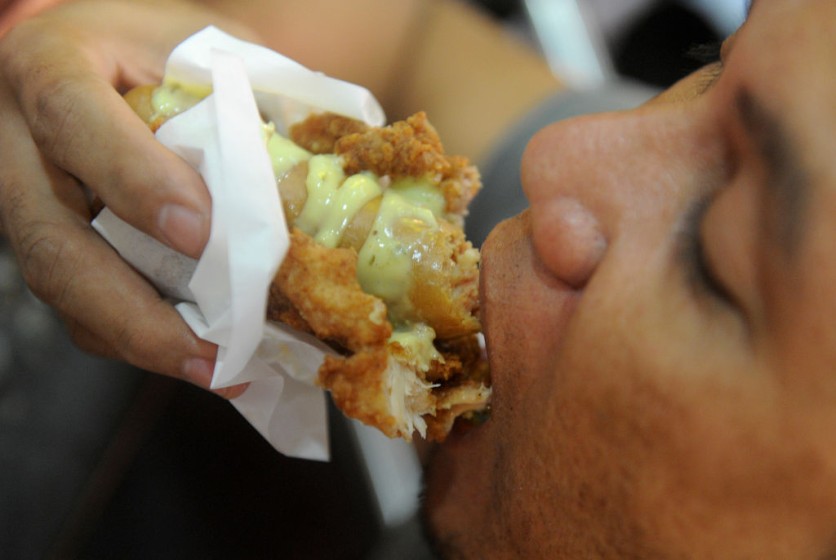Recent research links Instagram junk food content to mental health issues and increased food cravings. Social media advertising, used across sectors, is under examination for its mental health effects. A study published in Appetite found a disturbing correlation between Instagram junk food content and mental health issues and increased demand for unhealthy foods.
Involving 63 participants aged 18 to 24, the study divided them into two groups: one viewing a standard Instagram feed and the other exposed to images of junk food for 15 minutes, as reported by Healthline. Subsequent surveys assessed body image perception, mood, and food cravings.
The results, after seven days and a switch to the alternative Instagram feed, revealed heightened cravings for salty and fatty foods among those exposed to Instagram junk food content. Participants also reported increased stress, sadness, exhaustion, and hunger. Remarkably, neither Instagram feed influenced body image perception.

A man eats a "Double Down Dog," in Manila, a product conceived and introduced by the Philippine franchise of KFC.
Instagram Food Ads' Impact on Mental Health
Dr. Nicole Avena, a nutrition consultant and associate professor of neurology, noted that social media profoundly affects food interactions. The health expert stressed how social media food ads affect decisions, tilting people toward harmful selections endorsed by celebrities or healthier ones promoted by influencers. The comparison culture on social media, according to Dr. Avena, fosters negative impacts on individuals' relationships with food and body image.
Dr. Uma Naidoo, a nutritional psychiatrist, emphasized the diverse stimuli on social media, from enticing food cooking content to fitness influencers promoting particular lifestyles. This constant exposure, she noted, deeply influences perceptions and relationships with food.
Read Also : Prostate Cancer Prevention: Study Reveals Significant Risk Reduction Through Fitness Improvement
The psychological impact of exposure to junk food content is rooted in the brain's reward system. Dr. Mireille Serlie, a professor of internal medicine, explained that visual food cues induce a dopamine response in reward areas of the brain, with certain foods triggering higher responses than others. The repeated consumption of unhealthy food, as seen in advertisements, may alter brain wiring, leading to increased cravings and food intake.
Choose Healthy, Positive Content
This study underscores the potent psychological effects of food advertising on social media platforms, illustrating the intricate interplay between visual stimuli, brain responses, and individuals' mental well-being.
Notably, a separate study from the St. Louis School of Medicine at Washington University that examined nutrition and mental health revealed that eating fried foods may increase the risk of anxiety and depression, per Medical News Today. The findings add to the increasing amount of data showing that food affects physical, mental, and emotional health. Previous studies have connected fried or processed meals, sugary goods, and alcohol to feelings of depression and anxiety.
To promote healthy use of social media like Instagram, experts suggest subscribing to uplifting material and deleting negative posts. Moreover, a Hope 103.2 Network article recommends prioritizing genuine self-expression over seeking validation when posting as well as sharing photos of gratitude.

ⓒ 2025 TECHTIMES.com All rights reserved. Do not reproduce without permission.




